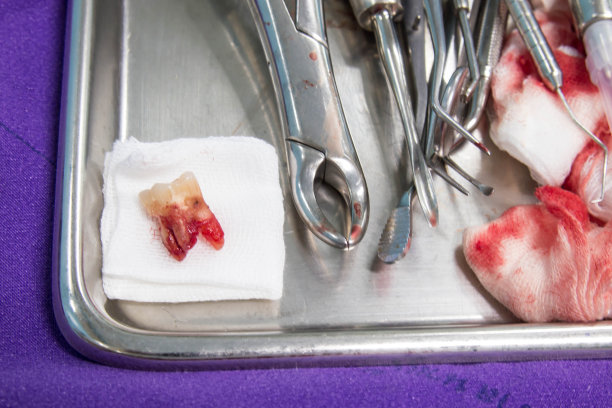Summary: Dental implantation is a vital procedure for restoring oral health and functionality after tooth loss. This article discusses essential steps and precautions necessary to ensure a successful dental implant process. Key areas covered include thorough pre-assessment and planning, the surgical procedure, post-operative care, and the importance of regular follow-ups. By focusing on these elements, individuals can significantly improve their chances for optimal oral health and satisfaction from their dental implants. This comprehensive guide will benefit both patients and practitioners, emphasizing the importance of meticulous preparation and ongoing care in the journey toward restoring smiles.
1. Thorough Pre-assessment and Planning Steps

The first essential step in successful dental implantation is thorough pre-assessment and planning. This involves a comprehensive evaluation of the patient’s oral and overall health. Dentists must consider conditions such as gum disease, bone density, and other medical issues that might influence the success of the implant. A three-dimensional scan or CT imaging is often essential for accurate visualization of the dental anatomy, ensuring that the surgical plan is tailored to the patient’s unique circumstances.
Once the evaluation is complete, the planning phase includes an extensive discussion between the dentist and the patient. This conversation should cover expectations, potential risks, and alternative options. It is crucial for patients to understand the duration of the process and the commitment required for proper care, both before and after the surgery. This transparency builds trust and helps mitigate anxiety regarding the procedure.
Lastly, the aesthetic aspect cannot be overlooked. Dentists should take into account the patient’s facial structure and dental aesthetics when planning the implant placement. A successful implantation should not only restore functionality but also enhance the overall appearance of the smile. Proper planning in this stage sets the tone for a successful outcome.
2. The Surgical Procedure and Its Complexities
The surgical procedure itself is both critical and complex, requiring precision and expertise. During the surgery, the dentist makes an incision in the gum to expose the bone, and then a hole is drilled into the bone, where the implant will be placed. This must be done with care to avoid damaging surrounding nerves and teeth. An experienced oral surgeon will be adept at navigating these challenges, ensuring proper implant placement that aligns with the pre-planned position.
Moreover, the materials used for the implant play a significant role in success. Titanium is commonly preferred due to its biocompatibility and strength. After the implant is placed, it undergoes an osseointegration process, wherein the bone grows around the implant, integrating it securely. This phase can take several months, emphasizing the need for meticulous follow-up and patient adherence to post-operative care guidelines.
Additionally, pain management is a critical concern during the surgical process. Patients are often prescribed pain relief medications and antibiotics to reduce the risk of infection. Proper management of these aspects during the surgery aids in ensuring a smooth recovery, contributing to the overall success of the dental implantation.
3. Post-operative Care for Optimal Recovery
Post-operative care is paramount to ensure the successful integration of dental implants into the jawbone. Immediately following surgery, patients are typically advised to apply ice packs to their face to minimize swelling and to follow a specific diet avoiding hard or chewy foods. Adhering to these recommendations is essential for a comfortable recovery and preventing complications.
Oral hygiene also plays a vital role in the healing process. Following instructions on gentle brushing and rinsing can help keep the surgical site clean, minimizing the risk of infection. Regular follow-up visits with the dentist allow for monitoring of the healing process and early detection of any potential problems. These appointments serve as an opportunity to discuss progress and adjustments in care if necessary.
Furthermore, lifestyle choices can impact recovery. It is crucial for patients to avoid smoking and excessive alcohol consumption, as these can hinder healing and pose risks to the success of the implantation. With proper care and adherence to instructions, patients can achieve optimal recovery and long-term satisfaction with their new implants.
4. Importance of Regular Follow-ups for Longevity
The final aspect of ensuring successful dental implantation lies in the importance of regular follow-ups. After the healing is complete, consistent dental check-ups are vital for maintaining oral health. These appointments allow dentists to monitor the health of both the gums and the implants, ensuring that they continue to function properly.
Moreover, preventive care should not be ignored. Regular cleanings and examinations help to detect any early signs of gum disease or other dental issues. Education regarding proper at-home care between visits, including techniques that promote oral hygiene and the longevity of implants, is essential.
Finally, being vigilant about overall oral health can aid in avoiding complications. A proactive approach, including a healthy diet and maintenance of general health, significantly benefits the longevity of dental implants. Regular follow-ups ensure that both patients and dentists are engaged in the ongoing success of the dental implant process.
Summary:
Successful dental implantation involves a systematic approach, beginning with thorough pre-assessment and planning, followed by a precise surgical procedure, diligent post-operative care, and regular follow-up visits. Each phase is interconnected, ensuring that patients not only achieve functional restoration but also enjoy a satisfying and aesthetically pleasing smile. With commitment from both dentist and patient, the journey towards optimal oral health can lead to lasting outcomes.
This article is compiled by Vickong Dental and the content is for reference only.
Vickong Dental
Vickong Dental is a large medical group established in Hong Kong in 2008 by professors from well-known medical universities in Guangdong and Hong Kong, as well as medical doctors from key national '985' universities (including Master's supervisors and senior professors). The chain of branches brings together expert dentists with PhDs and Master's degrees from Hong Kong and Mainland China, committed to providing high-quality dental treatment.
"Vickong Dental Practices the University Motto of 'Healing and Serving Society,' with a Stable Operation for Sixteen Years. It Has Been honored with Hong Kong Enterprise Leaders's Choice,' and is a Global Trusted Implant Center for the Nobel Implant System. Recommended by Hong Kong Metro Broadcast and Guangdong Television, it Serves Customers from Over Thirty Countries and Regions, Gaining the Trust and Favor of Citizens from the Guangdong-Hong Kong-Macau Greater Bay Area and Surrounding Cities.

Thousands of customers' unanimous praise
The most recognized and highly recommended dental service by customers in the Guangdong-Hong Kong-Macau Greater Bay Area
We Ensure You Receive Detailed Care and Attention Here
Hong Kong standards, Shenzhen prices, Your Trusted English-speaking dentists

Vickong Dental Medical-Grade Instrument Disinfection Process
Vickong Dental Medical-Grade Instrument Disinfection Process

Vickong Dental Chain: A Warm and Comfortable Environment for Treatment






Appointment Hours

Q&A
Why choose Vickong Dental?
Vickong Dental practices the university motto 「Medicine to Benefit Society」, with each branch bringing together highly qualified dentists with doctoral and master’s degrees from Hong Kong and the Mainland, and has maintained seventeen years of steady operation。Recipient of 「2024 Hong Kong Enterprise Leaders Brand」, 「2025 Hong Kong Enterprise Leaders Brand」, a Nobel Biocare Global Trusted Implant Center, and a brand recommended by Metro Radio Hong Kong and Guangdong TV。
To date, we have served customers from more than thirty countries and regions,earning exceptionally high word-of-mouth recognition and trusted recommendations from residents across the Guangdong-Hong Kong-Macao Greater Bay Area and surrounding cities
We have eight major branches in Zhuhai、Shenzhen,and a consultation and service assurance center in Hong Kong,so you can book a free consultation at any time for any questions,which is very reassuring.
If I do not accept the quotation after the CT scan, will I be charged??
No! As long as the actual treatment has not started, you will not be charged any fees.
Will there be any additional charges during the treatment process?
No, there won’t be any additional charges. Before treatment begins, we will clearly explain the treatment plan and its corresponding fees. Only after the patient agrees and signs the consent form will we proceed with the dental service.
Can I pay in Hong Kong dollars?
Yes. Vickong Dental accepts payment in Hong Kong dollars. The amount will be converted based on the exchange rate of the day, and the applicable rate will be clearly communicated to you in advance.
Can I reschedule my appointment at any time?
Yes. Please contact us via **WeChat** or **WhatsApp** as early as possible, providing your original appointment time and details, along with your preferred new date and time slot for rescheduling.













